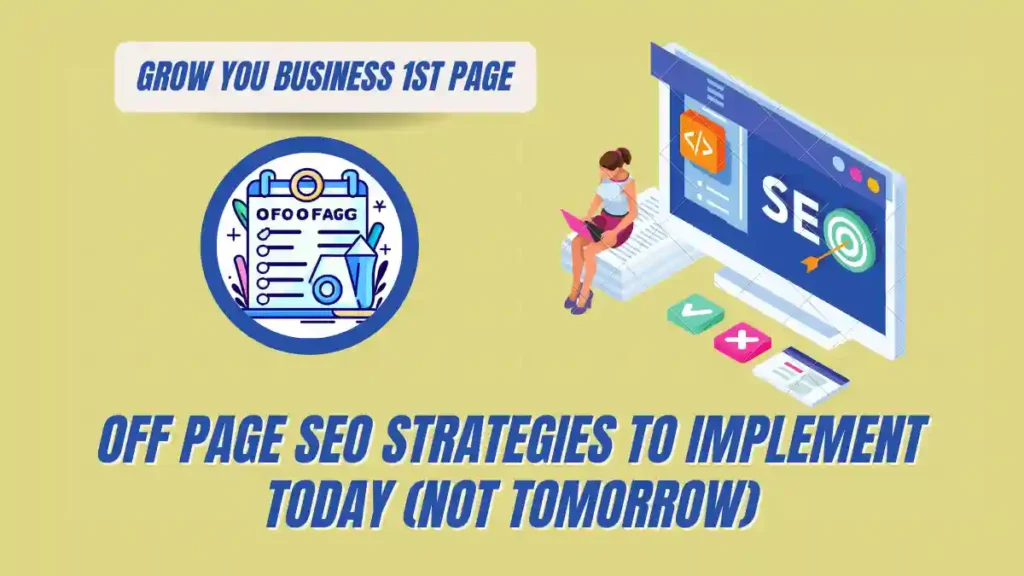Marketing strategy is the foundation upon which all successful businesses build their growth. A well-crafted marketing strategy defines how your business will reach customers, communicate value, and ultimately achieve revenue targets. In 2025, developing an effective marketing strategy requires understanding diverse customer behaviors, leveraging multiple digital channels, and integrating data-driven insights throughout the entire marketing operation. This comprehensive guide covers everything you need to understand, develop, and execute a powerful marketing strategy that drives measurable business results.
Table of Contents
What is Marketing Strategy and Why It Matters
Marketing strategy is a comprehensive plan that outlines how a business will create, communicate, and deliver value to its target customers. Unlike tactics which are individual actions, strategy provides the overarching direction and framework guiding all marketing decisions and investments. A strong marketing strategy aligns marketing efforts with business objectives, optimizes resource allocation, and ensures consistent messaging across all customer touchpoints.
In today's competitive landscape, having a marketing strategy is not optional. Research shows that businesses with documented marketing strategies achieve 538 percent higher revenue growth compared to those without clear strategy. Marketing strategy becomes even more critical as businesses scale because it prevents wasteful spending and ensures every marketing dollar delivers measurable return on investment.
Core Components of an Effective Marketing Strategy
| Component | Definition | Why It Matters |
|---|---|---|
| Business Goals | Clear, measurable objectives aligned with overall company vision | Ensures marketing efforts drive actual business results not just activity |
| Target Audience Segmentation | Dividing customers into specific, actionable groups with distinct needs | Allows tailored messaging that resonates more effectively with each segment |
| Competitive Analysis | Understanding competitor offerings, positioning, and market gaps | Reveals opportunities for differentiation and competitive advantage |
| Unique Value Proposition | Clear articulation of what makes your offering different and valuable | Creates compelling reason for customers to choose you over alternatives |
| Channel Strategy | Integrated mix of channels including digital, social, email, content, and paid | Reaches customers where they are with appropriate messaging for each channel |
| Messaging Framework | Consistent key messages reflecting brand positioning and value proposition | Ensures alignment and reinforcement across all marketing communications |
| Budget Allocation | Strategic distribution of marketing resources across channels and initiatives | Maximizes ROI by investing in highest-performing channels and tactics |
| Performance Metrics | Key performance indicators tracking progress toward goals | Enables data-driven optimization and accountability for results |
Key Advantages and Disadvantages of Different Marketing Strategy Approaches
| Strategy Type | Main Advantages | Key Disadvantages |
|---|---|---|
| Digital Marketing Strategy | Highly measurable, cost-effective, precise targeting, real-time optimization, global reach | Requires technical expertise, fast-changing landscape, high competition, learning curve |
| Content Marketing Strategy | Builds authority, generates organic traffic, long-term asset value, improves SEO | Slow ROI timeline, requires consistent effort, needs quality content skills |
| Social Media Marketing Strategy | Direct audience engagement, builds community, viral potential, cost-efficient | Time-intensive, algorithm dependent, reputation risks, requires active management |
| Search Engine Marketing Strategy | Captures high-intent audience, immediate results, clear ROI tracking, scalable | Expensive, competitive keywords, requires ongoing optimization, bidding wars |
| Email Marketing Strategy | High ROI, direct communication, personalization, owned audience, measurable | List decay over time, spam concerns, requires segmentation discipline, compliance |
| Traditional Marketing Strategy | High credibility, reaches offline audiences, established trust, local impact | Expensive, limited tracking, slow response times, less targeted, declining effectiveness |
Master Marketing Strategy Development
Learn proven frameworks to create winning marketing strategies that drive business growth and competitive advantage.
How to Develop Your Marketing Strategy Step-by-Step
Step 1: Define Clear Business Goals and Objectives
Before developing marketing tactics, articulate exactly what your business aims to achieve. Goals should be SMART: Specific, Measurable, Achievable, Relevant, and Time-bound. Common marketing strategy goals include increasing brand awareness by specific percentage, generating specific number of qualified leads monthly, increasing customer acquisition by targeted amount, improving customer retention rates, or launching new products successfully.
Step 2: Research and Understand Your Target Audience
Deep audience understanding is foundational to effective marketing strategy. Conduct market research, surveys, and analysis to understand your target customers including demographics, psychographics, pain points, purchasing behaviors, and preferred communication channels. Create detailed buyer personas representing different customer segments. The more specific your audience understanding, the more targeted and effective your messaging becomes.
Step 3: Conduct Thorough Competitive Analysis
Analyze competitor strategies, positioning, messaging, channels, and performance. Identify what competitors are doing well and where market gaps exist. Look for opportunities to differentiate your offering. Understand competitor strengths and weaknesses. This competitive intelligence informs your unique positioning and strategy development.
Step 4: Identify Your Unique Value Proposition
Clearly articulate what makes your business different and why customers should choose you. Your unique value proposition answers customer questions like “Why should I buy from you?” and “What specific problems do you solve?” Develop compelling messaging around your value proposition that differentiates you from alternatives.
Step 5: Select Appropriate Marketing Channels
Choose marketing channels where your target audience is most active and receptive. Different audiences prefer different channels. B2B audiences often respond well to LinkedIn and email. B2C audiences engage on social media and search. Select channel mix based on audience behavior and business objectives. Avoid spreading resources too thin across too many channels.
Step 6: Develop Integrated Campaign Plans
Create specific campaign plans for each channel with clear objectives, messaging, timeline, and budget. Ensure consistency across channels while optimizing for each platform. Coordinate campaign timing for maximum impact. Plan content calendars. Define roles and responsibilities. Establish approval processes.
Step 7: Establish Performance Metrics and Measurement
Define key performance indicators aligned with goals. For awareness campaigns, track metrics like impressions and reach. For lead generation, track qualified leads and cost per lead. For revenue-focused campaigns, track conversion rates and revenue generated. Establish dashboards to monitor performance. Plan regular reporting cycles.
Step 8: Execute, Monitor, and Optimize
Launch campaigns and continuously monitor performance against targets. Track metrics daily or weekly depending on campaign type. Identify what is working and what needs adjustment. Optimize based on data. Test different approaches. Double down on winners. Eliminate or improve underperforming initiatives. Continuous optimization is essential for marketing strategy success.
Top Marketing Strategy Approaches for Business Success in 2025
Integrated Multi-Channel Strategy
Rather than relying on single channel, integrate multiple channels including SEO, paid search, social media, email, content, and traditional media. Each channel plays specific role in customer journey. Coordinate across channels for consistent messaging and maximum impact.
Customer-Centric Strategy
Focus on delivering genuine value and solving customer problems rather than pushing products. Build customer relationships through helpful content, excellent service, and authentic engagement. Customer-centric strategies build loyalty and generate word-of-mouth referrals.
Data-Driven Strategy
Base all decisions on data and analytics rather than assumptions. Track metrics, analyze results, and optimize based on performance data. Use marketing automation, analytics platforms, and CRM systems to gather and act on customer insights.
Personalization Strategy
Customize messaging and offers based on individual customer data including behavior, preferences, purchase history, and stage in buying cycle. Personalized marketing increases engagement and conversion rates significantly. Use marketing automation to deliver personalized messages at scale.
Content-First Strategy
Prioritize creating valuable, relevant content that attracts and engages audience. Use content to build authority, drive organic traffic, nurture leads, and build trust. Content serves as foundation for SEO, social media, email, and paid advertising.
Growth Hacking Strategy
Focus on rapid experimentation across marketing channels and product features to identify most efficient paths to business growth. Test unconventional tactics, viral mechanisms, and innovative approaches. Emphasize data analysis and rapid iteration.
Comprehensive Marketing Strategy Comparison for Different Business Types
| Business Type | Best Channels | Primary Focus | Key Metrics |
|---|---|---|---|
| B2B SaaS | LinkedIn, email, content, webinars, search | Lead generation and sales enablement | SQLs, conversion rate, customer acquisition cost |
| E-commerce | Social media, search, email, influencers, content | Product sales and customer lifetime value | Sales, AOV, conversion rate, customer retention |
| Service Businesses | Local SEO, Google My Business, social media, referrals | Local awareness and client acquisition | Leads, conversion rate, client retention |
| Content Creators | YouTube, social media, email, blog, podcasts | Audience building and engagement | Subscribers, engagement rate, revenue per viewer |
| Nonprofits | Email, social media, events, content, partnerships | Donor acquisition and mission awareness | Donors, donation amounts, volunteer engagement |
Essential Pricing Information for Marketing Strategy Services
- Marketing Consultants: Typically charge 100 to 300 dollars per hour depending on experience and expertise level
- Agency Retainers: Range from 2,000 to 20,000 dollars monthly based on scope, team size, and deliverables
- Freelancers: Generally charge 50 to 150 dollars per hour for strategy development and execution
- Marketing Automation Platforms: Cost between 10 to 500 dollars monthly depending on features and scalability
- Analytics and Intelligence Tools: Vary from free options to 500 plus dollars monthly for enterprise features
- Content Marketing Tools: Range from free to 300 dollars monthly for planning, creation, and distribution
Who Benefits Most From Professional Marketing Strategy Development
- Startups: Need focused strategy to enter market effectively and acquire initial customers
- Growing Companies: Require scaling strategy to maintain growth while managing increasing complexity
- Mature Businesses: Need refresh and optimization of existing strategies to stay competitive
- Nonprofits: Benefit from strategy for donor acquisition, mission awareness, and volunteer engagement
- Enterprises: Require sophisticated multi-market, multi-channel strategies coordinating across geographies and brands
Build Your Professional Marketing Strategy
Get expert guidance and tools to develop winning marketing strategies that deliver measurable results.
Why Choose Professional Marketing Strategy Experts
Professional marketing strategists bring years of experience across industries, deep knowledge of current trends and best practices, analytical expertise to interpret data, and proven frameworks that accelerate results. They provide objective perspective, challenge assumptions, and identify opportunities that internal teams might miss. Professional strategists invest time understanding your unique business challenges and opportunities before recommending approach. They help avoid costly mistakes and optimize resource allocation for maximum ROI.
Marketing Strategy Tips and Tricks for Maximum Effectiveness
- Start with customer journey mapping to understand all touchpoints and opportunities for engagement
- Use buyer personas to guide messaging, channel selection, and campaign development
- Balance brand building with direct response to create sustainable long-term growth
- Test continuously using A/B testing on headlines, messages, creative, offers, and timing
- Leverage marketing automation to scale personalized communication across larger audiences
- Establish accountability with clear metrics and regular performance reviews
- Maintain brand consistency across all channels and customer touchpoints
- Stay updated on marketing trends but avoid chasing every new platform or trend
- Invest in quality content over quantity as valuable content compounds in value
- Create feedback loops with sales, customer service, and customers to refine strategy
- Review and update marketing strategy annually or when significant market changes occur
- Document strategy clearly so all team members understand direction and priorities
Common Marketing Strategy Mistakes to Avoid
- Lack of Clear Strategy: Jumping to tactics without strategic framework leads to wasted budget
- Ignoring Customer Research: Making assumptions about customers rather than researching actual needs and behaviors
- Spreading Too Thin: Attempting to be everywhere rather than focusing on highest-impact channels
- Inconsistent Messaging: Different messages on different channels confuse customers and weaken brand
- Not Tracking Metrics: Failing to measure performance prevents optimization and accountability
- Copying Competitors: Imitating competitor strategies rather than finding unique differentiation
- Neglecting Mobile: Ignoring mobile optimization when majority of traffic comes from mobile devices
- Inconsistent Execution: Starting campaigns then abandoning them before results appear
- Wrong Budget Allocation: Investing heavily in underperforming channels while starving winners
- Ignoring Data: Making decisions based on intuition rather than performance data
Marketing Strategy Examples and Real-World Applications
Example 1: B2B Software Company
Strategy focused on LinkedIn for thought leadership, webinars for lead generation, email nurture sequences, and case study content. Budget allocation: 40 percent email, 30 percent content and webinars, 20 percent LinkedIn, 10 percent paid search. Results: 45 percent increase in qualified leads, 35 percent improvement in sales conversion rate.
Example 2: E-commerce Fashion Brand
Strategy emphasizing influencer partnerships, Instagram and TikTok for product discovery, email campaigns for retention, and user-generated content. Budget allocation: 35 percent paid social, 25 percent influencers, 25 percent email, 15 percent content. Results: 60 percent increase in online sales, 50 percent improvement in customer lifetime value.
Example 3: Service-Based Business
Strategy focused on local SEO, Google My Business optimization, local content marketing, and community partnerships. Budget allocation: 40 percent local SEO, 30 percent Google Ads, 20 percent content, 10 percent events. Results: 80 percent increase in qualified local leads, improved online visibility in service area.
Frequently Asked Questions About Marketing Strategy
What is the difference between marketing strategy and marketing plan?
Marketing strategy is the overall approach and direction for achieving business objectives. It defines why and what you will do. Marketing plan contains specific tactics, timelines, budgets, and responsibilities for executing the strategy. Strategy is broader and longer-term while plan is more detailed and actionable.
How long does it take to develop effective marketing strategy?
Developing comprehensive marketing strategy typically takes 4 to 12 weeks depending on business complexity and research requirements. Simple strategies for small businesses might take 2 to 4 weeks. Complex enterprise strategies can take 3 to 6 months. Once developed, strategy should be reviewed and updated annually.
How much should a business spend on marketing according to marketing strategy?
Marketing budget varies by industry and business stage. Generally, businesses allocate 7 to 10 percent of revenue to marketing. High-growth startups often invest 15 to 25 percent. Mature companies with established brands might spend 3 to 5 percent. Allocation depends on market competitiveness, growth goals, and customer acquisition costs in your industry.
What metrics should marketing strategy focus on?
Key metrics depend on strategy goals but typically include customer acquisition cost, conversion rate, customer lifetime value, return on ad spend, brand awareness metrics, engagement rates, and revenue generated. Choose metrics directly aligned with business objectives and track consistently over time.
Can small businesses develop effective marketing strategies?
Absolutely. While resources are limited, small businesses can develop highly effective strategies by focusing on highest-impact channels, building deep customer relationships, emphasizing word-of-mouth and referrals, and leveraging digital tools efficiently. Focused strategy helps small businesses compete effectively against larger competitors.
How should marketing strategy change for different customer segments?
Different customer segments have different needs, preferences, and buying behaviors. Develop tailored messaging and channel approaches for each segment. Some segments might prefer email while others prefer social media. Customize offers, content, and communication timing for each segment to maximize relevance and conversion.
What role does content play in marketing strategy?
Content is foundational to modern marketing strategy. Quality content attracts organic traffic through SEO, builds authority and trust, generates leads through information download offers, supports sales through educational resources, and builds customer loyalty through valuable ongoing communication. Content supports virtually every marketing channel and objective.
How should marketing strategy address competition?
Rather than copying competitors, use competitive analysis to identify opportunities for differentiation. Focus on your unique strengths and customer needs competitors are not addressing. Build strategy around your unique value proposition. Monitor competitors for threats but do not let them drive your strategy.
How often should marketing strategy be revised?
Formal strategy review should happen annually. However, continuous monitoring and optimization of tactics is ongoing. If significant market changes occur, customer preferences shift, or new competitive threats emerge, update strategy sooner. Successful companies review strategy quarterly and adjust tactics based on performance data.
What tools help develop and execute marketing strategy?
Tools supporting marketing strategy include HubSpot for integrated marketing and sales, SEMrush for competitive intelligence and content planning, Google Analytics for performance tracking, Hootsuite for social media management, Mailchimp for email marketing, Asana for project management, and Tableau for data visualization. Choose tools matching your strategy needs and team capabilities.
Transform Your Marketing With Professional Strategy
Get expert strategic planning and tools to build competitive advantage and drive sustainable business growth.
Marketing Strategy Alternatives and Options You Should Consider
While traditional in-house marketing strategy development is common, alternatives include hiring external marketing agencies, working with independent consultants, using marketing strategy frameworks and templates, or combining internal team with outsourced expertise. Each approach has tradeoffs in cost, control, and perspective. Evaluate options based on your business size, resources, expertise gaps, and specific needs.
Which Marketing Strategy is Best for Your Business
The best marketing strategy depends entirely on your specific business, target audience, competitive situation, resources, and objectives. What works for one business will not necessarily work for another. Develop strategy tailored to your unique circumstances. Start with fundamentals including customer research, competitor analysis, and clear goal setting. Build integrated approach combining multiple channels. Test and optimize continuously. Update strategy regularly as business and market evolve.
Conclusion: Marketing Strategy Drives Business Success
Marketing strategy is essential foundation for business growth and competitive success in 2025 and beyond. Businesses with clear strategies achieve dramatically better results than those without direction. A well-developed marketing strategy aligns all marketing efforts, optimizes resource allocation, ensures consistent messaging, and creates accountability for results.
Whether you are just starting business, scaling growing company, or optimizing established brand, investing time in developing thoughtful marketing strategy pays dividends. Use the frameworks and guidance in this article to develop your strategy. Focus on understanding customers deeply, differentiating competitively, selecting appropriate channels, and measuring results rigorously. Execute consistently and optimize based on performance data. The result will be more effective marketing driving stronger business growth and sustainable competitive advantage.







